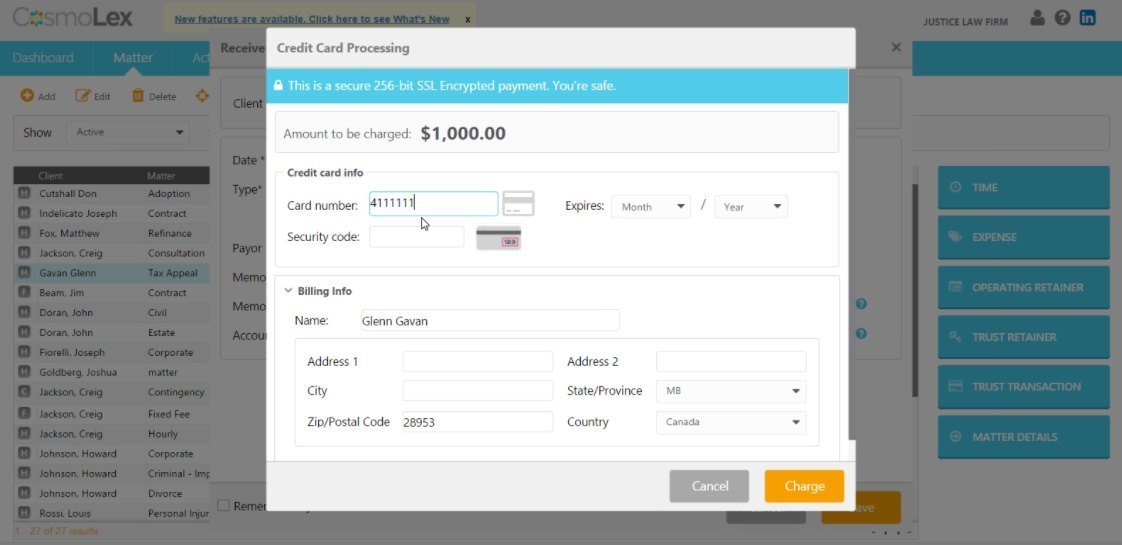As I’ve noted before, the practice-management platform CosmoLex has been on a development roll. It made its debut at ABA Techshow in 2014 as a cloud-based time, billing and trust accounting program for solos and small firms. (I reviewed it here.) Then, in December 2014, it added a suite of practice-management tools that included document storage and management, pre-defined workflows and case notes. At this year’s Techshow, it announced the addition of a complete law firm accounting system, including both general business and legal-specific accounting functions.
This week, it is announcing another new feature: integrated credit card payments and processing.
To provide this feature, CosmoLex is partnering with LawPay. CosmoLex subscribers will need a separate LawPay account. Other credit-card processors may be added in the future, CEO Rick Kabra told me earlier this week.
The advantage for CosmoLex users, Kabra said, is that credit card payments can now be integrated with both a firm’s billing and accounting systems, since CosmoLex includes both.
“Often, law firms have one system for billing and one for accounting,” he said. “So when it comes to credit card processing, it gets tricky.” When a credit card payment shows up in a firm’s bank account, many accounting systems would have no way of identifying it, he said.
With the integration of LawPay into CosmoLex, credit card payments can be made in either of two ways. Either the firm can enter the client’s card information itself or it can add a link to its invoices that lets the client enter the information directly through a Web page that is branded with the firm’s identity.
Either way, the payment is immediately reflected in the client’s accounts. It is properly credited as a trust account payment, a fee advance retainer or a payment against an invoice.
 Robert Ambrogi Blog
Robert Ambrogi Blog